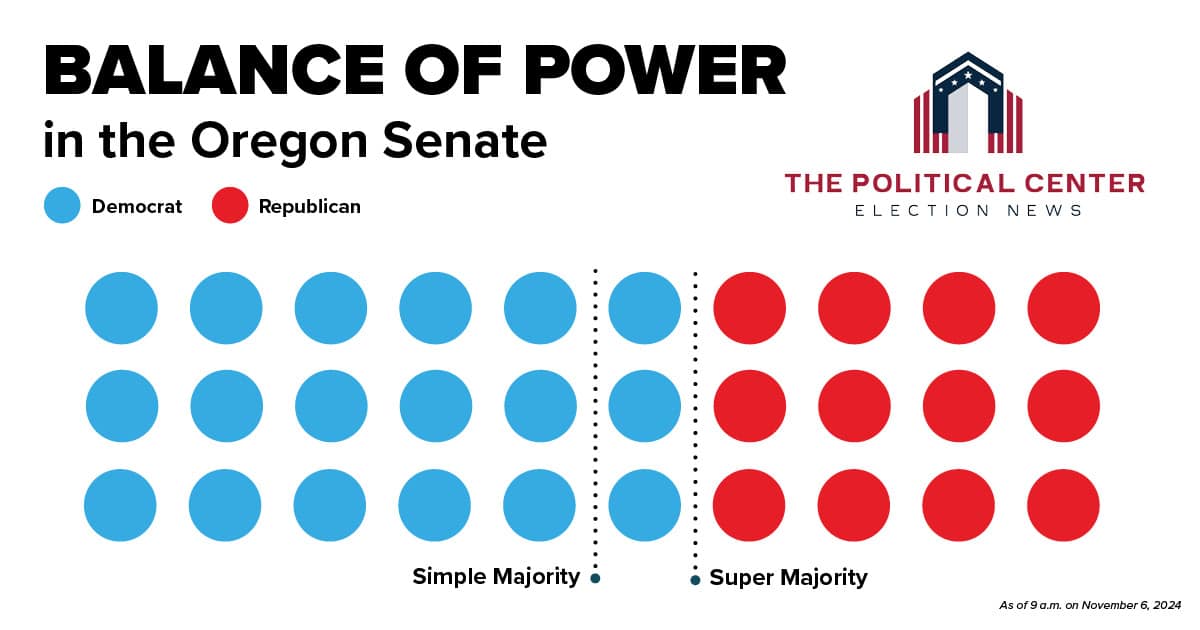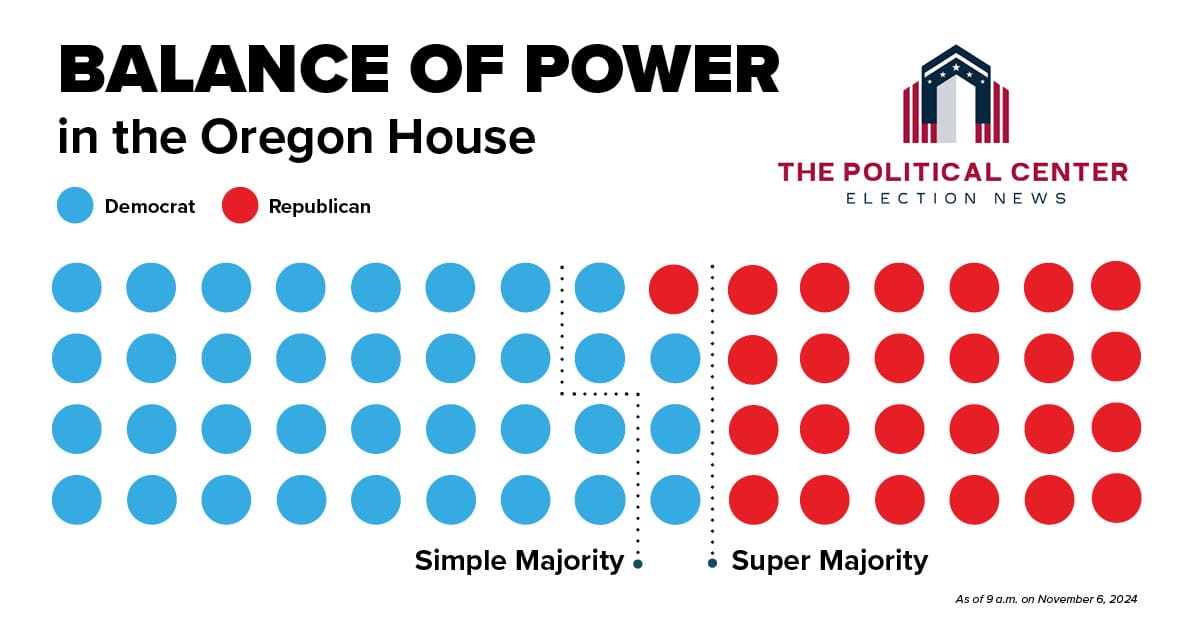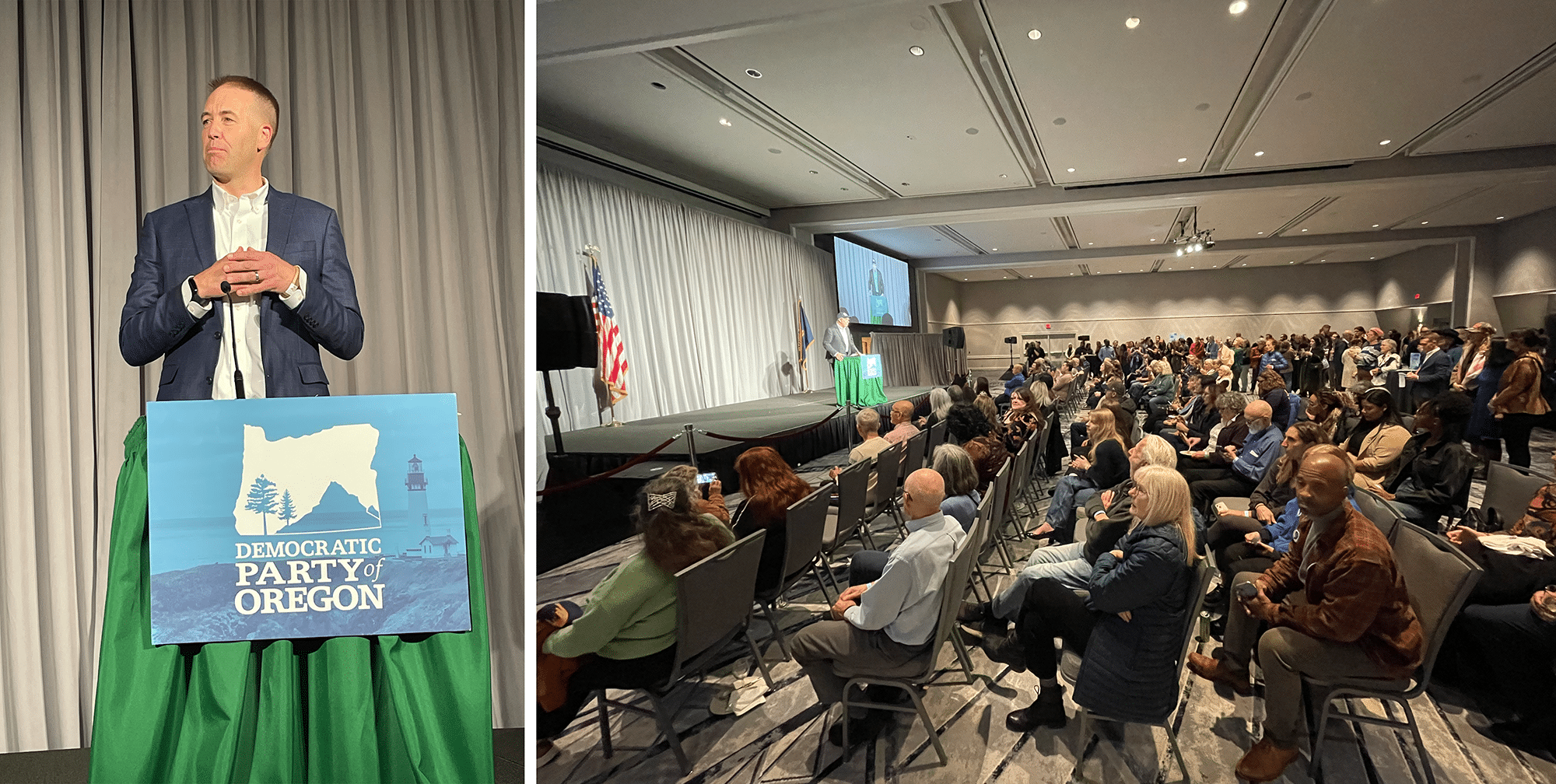REAL Oregon Heads Into The Woods
Editor’s note: This is the second in a series of features by Pac/West Communications Director George Plaven detailing his professional development journey with REAL Oregon. To read previous installments in this series, click the links below:
- Session 1: Klamath Falls
Situated along a muddy forest road near Roseburg, three pieces of logging equipment bellowed as crews with Lone Rock Resources harvested Douglas firs from privately managed timberland.
First, the crane-like yarder pulled entire trees up a steep hillside draped in morning fog. Next, a processor cut each log to length while stripping away limbs and bark. Finally, a large loader stacked processed logs neatly onto waiting trucks to be hauled away to the mill.
Timber and forestry were the focus of my second session with REAL Oregon in Roseburg (the “Timber Capital of the Nation,” as proudly displayed on the city seal). Our first tour stop brought us to Lone Rock Resources, which manages more than 150,000 acres in southwest Oregon.

Watching as the yarder harvests Douglas fir trees on property managed by Lone Rock Resources.
Watching the harvest in action, I was amazed by how smooth and precise the entire process is. It felt like a carefully choreographed dance, mastered by operators who have spent thousands of hours in the cabs of these mighty machines.
On the flip side, my classmates and I were also shown the importance of reforestation following harvest. The Oregon Forest Resources Institute (OFRI) estimates that landowners plant about 40 million seedlings every year, as required by state law. We were even invited to plant a few Douglas fir seedlings of our own, which will grow over the next 40-60 years depending on location and conditions.

This Douglas fir sapling will be ready to harvest in 40-60 years.
‘Wood Is Good’
Nearly half of Oregon — about 30 million acres — is forestland. Our forests are managed for a variety of uses, including social, environmental, and economic.
Eastern Oregon forests are dominated primarily by pine trees, whereas 85% of Western Oregon forests are Douglas fir, which Joe Newton, president of Lone Rock Resources, described as the “king of trees” for timber producers.
Not only does Douglas fir grow straight and tall, but its wood is strong and flexible, making it a perfect building material. Newton said the underlying demand for more housing is driving timber markets, with Roseburg home to a world-class collection of innovative manufacturers to meet the need.

An exterior view of the Swanson Group’s Roseburg stud mill.
One of those manufacturers, the Swanson Group, welcomed us inside their Roseburg stud mill to see how raw logs are transformed into two-by-fours and other building products.
Today, the mill produces 250 million board-feet of studs per year. Board-feet is a common measurement for wood that is 1 foot long, 1 foot wide, and 1 inch thick. Though the sound was deafening, we wore special headsets that allowed us to talk back and forth as we walked through the facility roaring with saws and conveyors.

Interior view of the stud mill, overlooking the conveyor system.
If we learned nothing else, Newton said the takeaway should be that “wood is good.” Wood has a lower carbon footprint than steel and concrete, and Oregon’s advanced forest protection laws help ensure producers are sustainable.
Active Management Needed
Despite these advantages, Oregon’s timber industry has been in decline since the 1990s.
According to the American Forest Resource Council (AFRC), a Portland-based timber industry lobbying group, timber harvest in Oregon has dropped from about 8 billion board-feet in the mid-1980s to about 3.8 billion board-feet in recent years.
The federal government manages 60% of Oregon forests, yet produces just 14% of timber harvest. Data from the AFRC shows harvest levels on federal lands have dropped from 2 billion board-feet in 1990 to just 200 million board-feet by 2015.
Seven mills have closed in Oregon in 2024, eliminating 700 jobs. Meanwhile, forests grow about 2.8 billion cubic feet of new wood per year. All that additional wood is helping to fuel larger, more destructive wildfires, including this year’s season that saw a record 1.9 million acres burn.
Newton, with Lone Rock Resources, said forests need more active management (logging and thinning) to benefit both the environment and economy of rural Oregon. Our class learned about a few successes in recent years — the Private Forest Accord, signed in 2021, was a significant compromise between the timber industry and conservation groups. Major investments in mass timber research could also unlock new and innovative wood markets.
But there is clearly still work to be done. As leaders, it is up to us to help both the public and policymakers see the forest through the trees.

Class 8 gathers outside Lone Rock Resources headquarters in Roseburg.




















